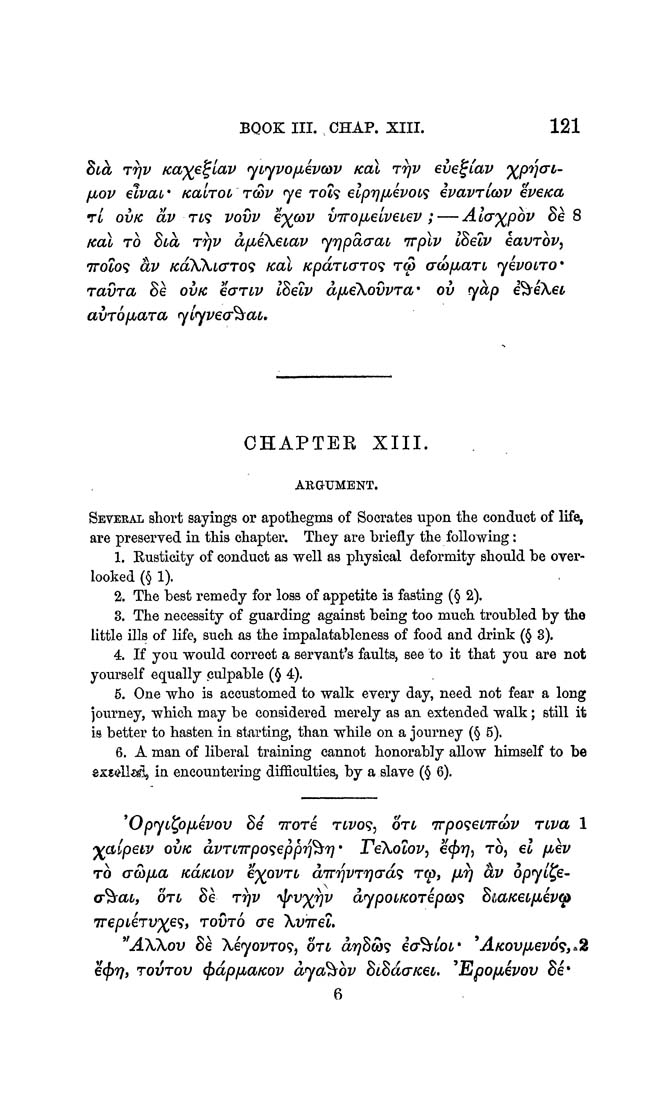BOOK IIL CHAP. XIII. 121
Std T^z/ Kaxe^lav ytyvoptivcov Kal t^z/ eve^iav XPV^^'
ptov elvat* KaiTOL T&v ye toIs elpyptivots ivavTlcov eveKa
tI ovk dv Tts vovv ex^ov vtto pte Ive tev ; — Alaxpbv Se 8
Kal Tb Std Tyv dpteXetav yypdaat TTplv ISelv iavTbv,
TTolos dv KaXXtaTOS ical KpdTtaTos tco a&ptaTt yivotTO*
TavTa Se ovk eaTtv iSelv dpteXovvTa* ov ydp i^iXet
avTbptaTa yiyvea^at.
CHAPTER XIII.
ARaUMENT.
Several short sayings or apothegms of Socrates upon the conduct of life,
are preserved in this chapter. They are briefly the following:
1. Rusticity of conduct as well as physical deformity should be over¬
looked (§ 1).
2. The best remedy for loss of appetite is fasting (§ 2).
3. The necessity of guarding against being too much troubled by the
little ills of life, such as the impalatableness of food and drink (§ 3).
4. If you would correct a servant's faults, see to it that you are not
yourself equally culpable (§ 4).
6. One who is accustomed to walk every day, need not fear a long
journey, which may be considered merely as an extended walk; still it
is better to hasten in starting, than while on a journey (§ 5).
6. A man of liberal training cannot honorably allow himself to be
QKtiAW^ in encountering difficulties, by a slave (§ 6).
'Opyt^optevov Se ttotc Ttvos, OTt TrposetTT&v Ttva 1
XCLipetv OVK dvTtTTposeppy^y* TeXolov, ecpy, to, et ptev
to a&pta KaKLov exovTL dTryvTyads tco, pty dv bpyl^e-
a^aL, OTL Se tt^z^ 'y^vxv^ dypoLKOTipcos SmKeLptivc^
TrepteTVxes, tovto ae XvTrel,
"AXXov Se XeyOVTOS, otl dyS&s ia^ioL* ^AKOvptev6s,^2
e^y, TOVTOV cpdppbaKov dya^bv StSdaicet. ^Epoptevov Si*
6
|








